Local
Money race underway in Maryland
Up to $7 million needed for marriage fight; O’Malley to host beach fundraiser
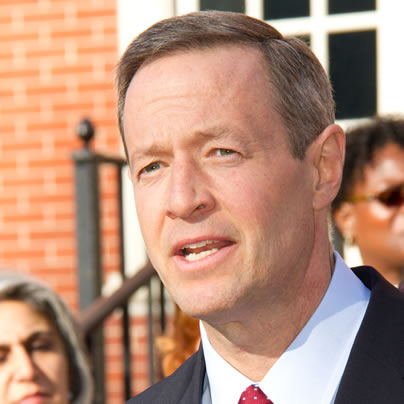
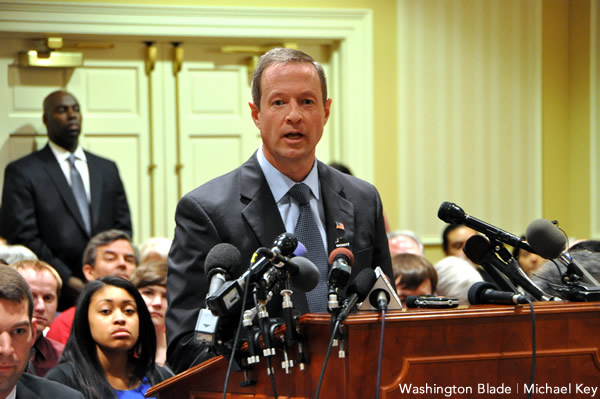
Maryland Gov. Martin O’Malley and House Speaker Michael E. Busch are scheduled to co-host a June 26 fundraiser in Ocean City for Marylanders for Marriage Equality. Tickets for the event start at $1,000. (Washington Blade photo by Michael Key)
Marylanders for Marriage Equality is confident it can run a “winning campaign” to defeat a voter referendum seeking to kill Maryland’s same-sex marriage law on a budget of between $5 million and $7 million, according to the organization’s campaign manager, Josh Levin.
“We feel good about that budget,” Levin told the Blade last week. “We feel like we’ll be able to do the things we need to do thanks to the effort of our coalition and our partners who are going to be talking to voters, who are going to be helping us in ways that I’m not sure are always the case in other campaigns.”
Levin’s comments came at a time when virtually all of the state’s political observers believe opponents of the marriage equality law will obtain far more than the number of petition signatures they need to place the referendum on the ballot in the Nov. 6 election.
The referendum language, which the Maryland State Board of Elections won’t draft until August, is expected to ask voters to approve or overturn a law passed earlier this year by the Maryland General Assembly legalizing same-sex marriage. The law also allows churches and religious organizations to refuse to perform such marriages.
Both sides have begun raising and spending money to wage their respective campaigns for and against the same-sex marriage law. But Maryland’s election law doesn’t require the campaigns to publicly disclose the amount of money they have raised or spent until Oct. 12, when the first of three campaign finance reports for a state referendum is due to be filed, according to Jared DeMarinis, a spokesperson for the election board.
He said the second campaign finance report must be filed on Oct. 26 and the third on Nov. 27, 21 days after the election.
DeMarinis said the election law requires organizations seeking to place the marriage equality law on the ballot in a referendum to file finance reports during the petition gathering process, which began earlier this year and continues through June 30. Those groups were required to disclose the receipt and expenditure of funds linked solely to the petition process during the past several months.
In what may come as a surprise to advocates of campaign finance disclosure laws, Marylanders for Marriage Equality isn’t required to disclose the amount of money it raises and spends and the names of its first round of donors until Oct. 12. The identity of its donors that contribute money between Oct. 26 and Election Day on Nov. 6 won’t have to be disclosed until 21 days after the election.
When asked last week by the Blade how much the campaign has raised so far, Levin said, “I don’t think I’m going to comment on that one.”
Some LGBT rights advocates in Maryland and elsewhere have expressed concern that Marylanders for Marriage Equality will need as much as $10 million to $12 million to wage an effective campaign to defeat the referendum and allow the same-sex marriage law to take effect.
These advocates, most of whom spoke to the Blade on condition that they not be identified, said Maryland’s marriage equality campaign will be competing for big donors and other contributors with the marriage equality campaigns in Maine, Minnesota and Washington State, where similar marriage referendums will be on the ballot in November.
The big donors, both gay and LGBT-supportive allies, are also being lobbied heavily to make large contributions to President Obama’s re-election campaign, placing further strain on the pool of funds needed by the pro-same-sex marriage campaigns.
“I don’t see Maryland having a very easy time pulling $10 million out to run this,” said Andy Szekeres, a professional fundraiser from Denver, who’s gay.
Szekeres is the former partner in a Denver-based fundraising company that raised more than $37 million for various political campaigns over the past several years.
“I think they’re grossly underestimating the resources that they’re going to need,” he said of Marylanders for Marriage Equality.
According to Szekeres, who was hired last year to help the statewide LGBT group Equality Maryland boost its fundraising efforts, the marriage equality side in Maryland must purchase TV ads in the expensive Washington, D.C. and Baltimore media markets.
He said he sees no evidence so far that the campaign has begun to buy and reserve TV ad time now, when the cost is lower than it will be in September and October, when the referendum campaign heats up and the Obama campaign and Maryland congressional candidates flood the airways with TV commercials.
Evan Wolfson, executive director of the national marriage equality advocacy group Freedom to Marry, said his group is “deeply embedded” in the marriage referendum campaigns in Maine, Minnesota, and Washington State and is helping those campaigns raise money. He told the Blade that the money needed to win marriage equality in those three states “will well exceed $25 million.”
He said Maryland’s marriage equality campaign will need “$10 million plus” to successfully fend off the referendum seeking to kill the state’s same-sex marriage law.
Wolfson has declined to comment on why Freedom to Marry has not joined the coalition of groups that that formed Marylanders for Marriage Equality. Campaign finance reports filed in Maine, Minnesota, and Washington show that Freedom to Marry has contributed thousands of dollars to the marriage equality campaigns in those states.
Levin and other officials with Marylanders for Marriage Equality dispute Szekeres’ and Wolfson’s assessment of the campaign’s fundraising needs, saying they believe they will have the resources to run an aggressive and effective grassroots campaign throughout the state.
“I’m not worried,” said Levin. “We’ve got a lot of folks around the country who are working on this issue and we’ve got four states where it’s on the ballot. And I think that supporters around the country are going to look at all four states. Hopefully they’ll support all four.”
Levin pointed to a poll last month commissioned by the campaign and conducted by the firm Public Policy Polling showing support for the same-sex marriage law leading among likely voters in Maryland by a margin of 57 percent to 37 percent. The same poll showed the marriage equality side leading among black voters in the state by a margin of 55 percent to 36 percent.
The poll findings, released on May 24, showed a dramatic increase in support of same-sex marriage by black voters following President Obama’s announcement that he and first lady Michelle Obama believe gay and lesbian couples should be allowed to legally marry.
Although the Public Policy Polling poll was commissioned by Marylanders for Marriage Equality, officials with the group note that a separate ABC News-Washington Post poll released around the same time found that 59 percent of blacks across the country expressed support for same-sex marriage.
“I think we’ve opened some eyes and changed some minds about Maryland here in the last couple of months,” Levin said. “Our poll numbers are probably the best in the country of the states where we are looking at this issue on the ballot right now.”
He added, “I know that I’m learning from my fellow campaign managers in the other states about what’s working there. We’re talking. We’re trying to work together. It’s not a rivalry. It’s a partnership. We all want to move this forward.”
Marylanders for Marriage Equality spokesperson Kevin Nix also points out that the group’s coalition partners are especially influential and knowledgeable on Maryland politics. They include the NAACP of Maryland, the ACLU of Maryland, Equality Maryland, the Human Rights Campaign, the National Gay and Lesbian Task Force, and the Service Employees International Union (SEIU) of Maryland, among other organizations.
LGBT advocates say the marriage equality side is likely to benefit from Maryland’s status as a solid Democratic state expected to vote strongly for Obama in the presidential election taking place at the same time as the marriage referendum. With polls showing that Democratic voters in general and Obama voters in particular tend to support same-sex marriage rights at higher levels than other voters, the presidential election will likely be a major boost to the campaign in favor of Maryland’s marriage equality law.
Polls conducted earlier this year also showed that as many as 30 percent of Maryland voters saying they plan to vote for Republican presidential candidate Mitt Romney also support same-sex marriage.
LGBT advocates in Maryland are also hopeful that Gov. Martin O’Malley, who enjoys widespread popularity throughout the state, will follow through with his promise to campaign vigorously in support of the same-sex marriage law and help raise money for the campaign. O’Malley has been credited with playing a key role in persuading the legislature to pass the law.
O’Malley’s chief fundraising consultant, Colleen Martin Lauer of the fundraising firm Martin-Lauer Associates, is working with the campaign, Lauer told the Blade. She declined to provide details on what her firm is doing, deferring inquires to the campaign.
O’Malley and Maryland House Speaker Michael E. Busch (D-Anne Arundel County) are scheduled to co-host a June 26 fundraiser in Ocean City for Marylanders for Marriage Equality. According to the Washington Post, tickets for the event start at $1,000.
Szekeres said he’s rooting for the success of the Maryland campaign as well as the pro-marriage equality campaigns in Maine, Minnesota and Washington. But he said other states have had similarly strong coalitions, with polling numbers showing the same-sex marriage side ahead. He notes that same-sex marriage has lost in each of the 32 states that have had ballot measures on the issue.
The 2008 approval of California’s Proposition 8, which overturned that state’s gay marriage law, and the 2009 defeat of a same-sex marriage law approved by the Maine legislature that year were especially heartbreaking, Szekeres and others familiar with those ballot measures said.
California voters approved Proposition 8 by a margin of 52 to 48 percent following polling numbers showing the marriage equality side was ahead. Polls showed that Maine’s same-sex marriage law would survive the referendum vote shortly before voters rejected the law by a margin of 53 to 47 percent.
Opponents of a Maine same-sex marriage law passed by the state legislature initiated the 2009 referendum, which killed the law before it took effect. This year’s referendum in Maine was initiated by same-sex marriage supporters, who want Maine to become the first state to put a same-sex marriage law in place through a popular election.
“We lose these things 52 to 48 percent across the country,” said Szekeres. “I’ve been at these things and our polling showed we were much higher in Maine [in 2009] than we were. People lie to pollsters. They don’t want to be bigots to the pollsters but they are when they go vote.”
He and others familiar with same-sex marriage ballot campaigns have said TV ads by opponents that allege that gay marriage is harmful to children and the traditional family continue to succeed in persuading a majority of voters to turn against marriage equality.
“Again, if they think they can run this on a shoestring budget because 57 percent of the people six months out from the election tell pollsters they support us, that’s not going to happen,” said Szekeres in discussing the Maryland referendum. “There will be a lot of negative advertising and negative advertising works. And we just don’t seem to have an effective response.”
Nix said Marylanders for Marriage Equality retained the D.C.-based national advertising firm Dixon-Davis Media Group to prepare the campaign’s TV ads on behalf of the same-sex marriage law.
The firm’s website describes itself as a “full-service strategic communications company and advertising agency serving Democratic candidates, campaigns and causes.”
Nix said the campaign has also retained the Hart Research polling company to conduct internal polls to help the campaign develop the best possible messages for persuading voters to support marriage equality.
Matthew Crenson, professor emeritus of political science at Johns Hopkins University in Baltimore, said he has observed a “shift in the electorate” that is likely to break the gay marriage losing streak on ballot measures.
“I think there’s a better than 50-50 chance that Maryland will become the first state to approve gay marriage in a referendum,” he said.
“One decisive event was when the NAACP endorsed [marriage equality] because African Americans in Maryland, especially those closely attached to churches, have traditionally been opposed to gay marriage and gay rights,” he said.
“But the NAACP defined this as a civil rights issue, which is similar to the kind of issues that African Americans have raised in the past,” he said. “And I think that introduced a kind of shift in the electorate that makes it more than likely that [same-sex marriage] will pass.”
Maryland political observer Michael J. Wilson, a Montgomery County resident and former executive director of the national group Americans for Democratic Action, said he too senses a shift in the direction of voters upholding the same-sex marriage law.
“I think there’s reason to be hopeful,” he said, adding that the ability of the marriage equality side to turn out their supporters at the polls will be a crucial factor in the outcome.
“In Maryland, if you carry Baltimore City, Baltimore County, Montgomery County, and Prince George’s County by a big enough margin, you win a statewide election,” Wilson said. “If you carry those big counties you can win the state, even if the other counties go 60 to 40 against you.”
Michael K. Lavers contributed to this report.
Virginia
From the Pentagon to politics, Bree Fram fighting for LGBTQ rights
Transgender veteran running for Congress in Va.
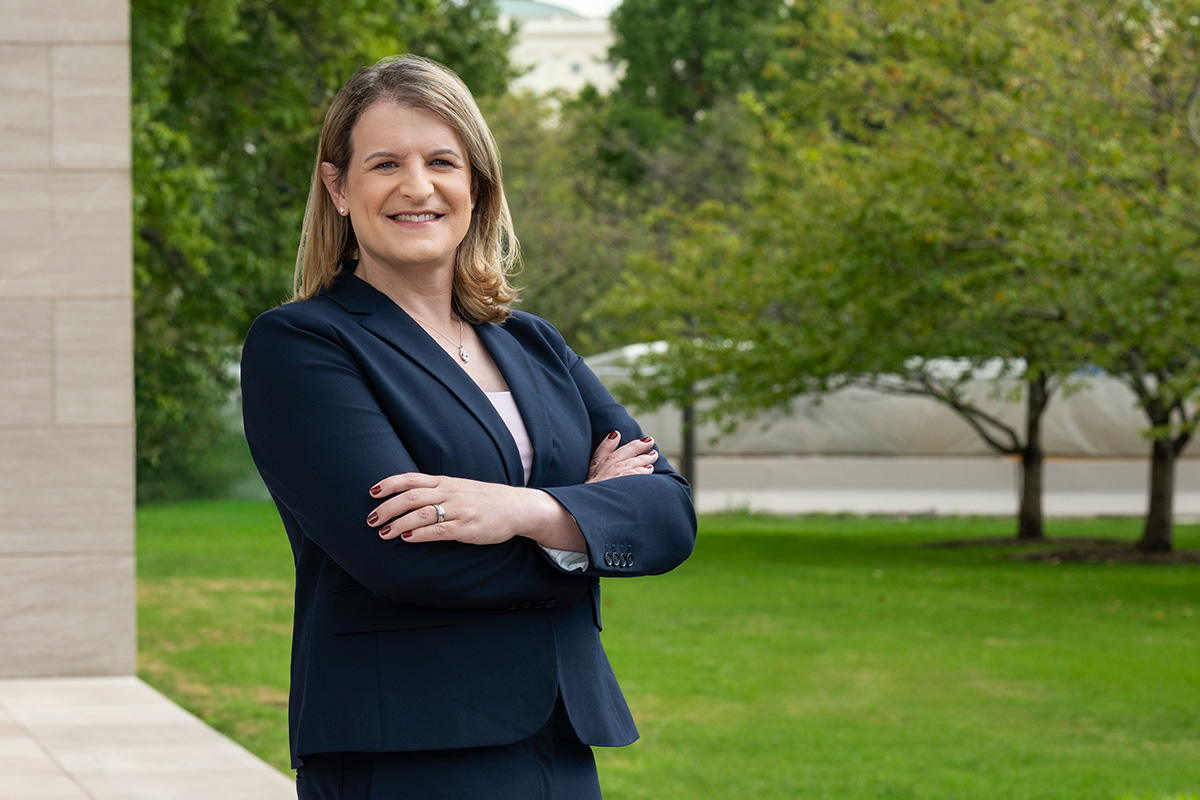
After being ousted from military service, Col. Bree Fram — once the highest-ranking openly transgender officer in the Pentagon — is now running for Congress.
Fram, who lives in Reston, Va., brings more than two decades of public service to her campaign. From the battlefield to the halls of the Pentagon, she spent more than 20 years working inside the federal government, often advocating for LGBTQ people and other marginalized communities from within the system.
Fram spoke with the Washington Blade about her decision to run amid sustained attacks against her — and against the LGBTQ community more broadly — from the Trump-Vance administration and far-right officials.
She said her commitment to public service began more than 22 years ago, shaped in large part by watching the Sept. 11, 2001, terrorist attacks.
“I had grown up expecting that there was this beautiful American peace stretching into the world for the foreseeable future, and that kind of image was shattered,” Fram told the Blade. “I realized that there was a continuous price to be paid to protect our democracy, to protect our freedoms. To be able to play a small part in defending those freedoms was incredibly important to me — to be part of something larger than myself.”
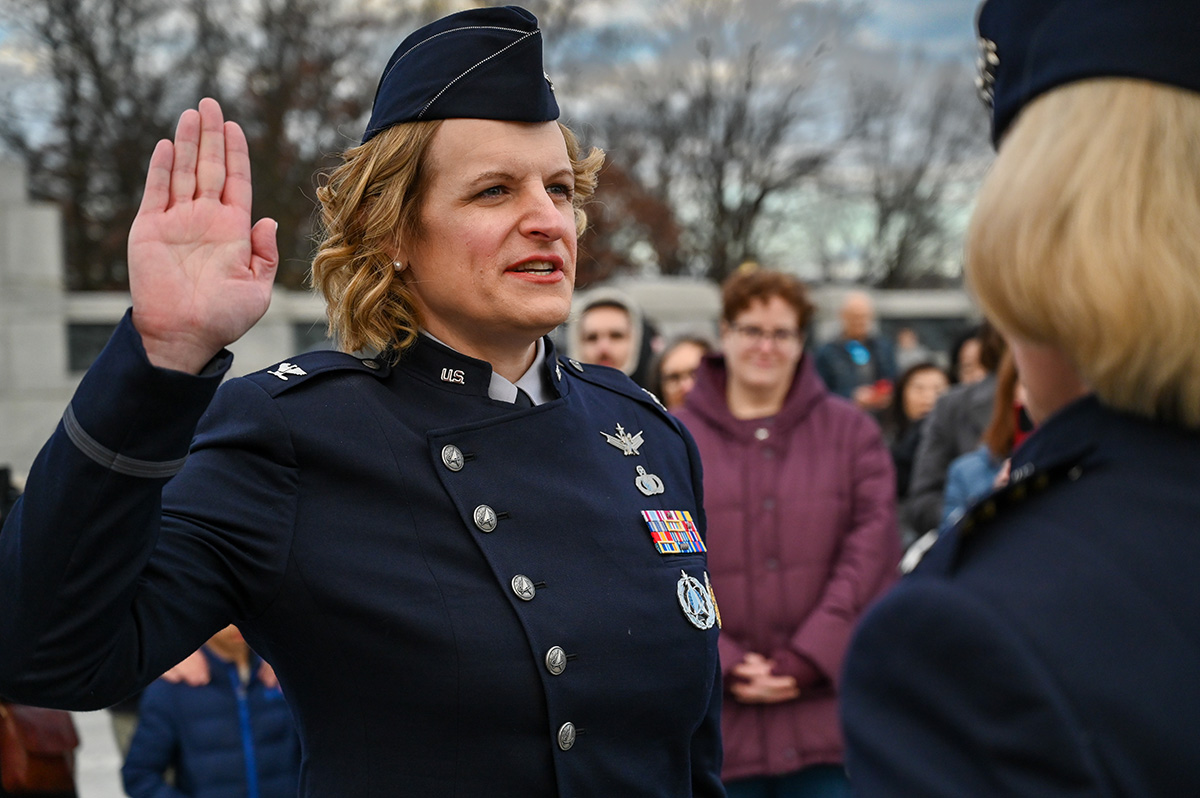
Commissioned through the U.S. Air Force Officer Training School in 2003, Fram served as an astronautical engineer and rose to the rank of colonel in the U.S. Air Force before later serving in the U.S. Space Force. She remained on active duty until 2025, when she was forced out following the Trump-Vance administration’s reinstated ban on trans military service.
Fram has been married for 20 years to her spouse, Peg Fram, and they have two children.
Beyond her military service, Fram has long been involved in advocacy and leadership. She has been a member of SPARTA, a trans military advocacy organization, since 2014, served on its board of directors beginning in 2018, and was president of the organization from 2021-2023.
Most recently, Fram served as chief of the Requirements Integration Division at Headquarters, Space Force, and as co-lead of the Joint Space Requirements Integration Cell in collaboration with the Joint Staff. Previously, she was chief of the Acquisition Policies and Processes Division for the assistant secretary of the Air Force for space acquisition and integration.
Earlier in her career, Fram served as a materiel leader at the Air Force Research Laboratory, overseeing the development of counter-small unmanned aerial systems and offensive cyberspace technologies in support of Pentagon and intelligence community priorities, managing an annual budget exceeding $100 million.
Her previous assignments also included oversight of Air Force security cooperation in four strategically significant Middle Eastern countries and 258 foreign military sales cases valued at $15.79 billion; serving as executive officer to the Air Force director of strategic plans, where she helped integrate the 30-year, $3.6 trillion Air Force Plan; a legislative fellowship on Capitol Hill with then-U.S. Del. Madeleine Bordallo (D-Guam), handling military, veterans, and foreign affairs issues; and a program management role at the National Reconnaissance Office, where she led a $700 million multi-agency engineering and IT contract overseeing more than 500 personnel and supporting $40 billion in assets.
Fram also directed 24/7 worldwide operations and maintenance of mission data processing for space-based and airborne national intelligence assets and co-led the Department of the Air Force’s LGBTQ+ Initiatives Team and Barrier Analysis Working Group from 2023-2025.
She holds a master’s degree from the Air Force Institute of Technology and is a distinguished graduate of the Naval War College. Fram deployed in support of Operation Iraqi Freedom, where she worked on airborne counter-improvised explosive device technologies.
In January, Fram, alongside four other trans military officers, was given a special retirement ceremony by the Human Rights Campaign — a direct result of President Donald Trump’s 2025 Executive Order 14183, titled “Prioritizing Military Excellence and Readiness.” The policy directed the Pentagon to adopt measures prohibiting trans, nonbinary, and gender-nonconforming people from serving in the military.
Under Virginia’s current congressional maps, Fram would challenge Congressman James Walkinshaw in a Democratic primary in the 11th Congressional District, which includes the city of Fairfax and most of Fairfax County. However, the district’s boundaries could change pending ongoing redistricting discussions in the state.
Fram emphasized that her decades working within the executive branch shaped her understanding of what it means to take — and uphold — an oath to the Constitution, even when those in power later forced her out of service solely because of her identity, not her performance.
“Through 23 years of service, I learned what it meant to fulfill that oath to the Constitution, and I wanted to continue serving,” she said. “But when this administration came in and labeled me and others like me ‘dishonorable’ and ‘disciplined liars who lack the humility required for military service,’ it hit hard. When the Supreme Court then agreed to let the administration fire all of us, I had to figure out what would allow me to continue my service in a way that was meaningful and lived up to that oath.”
After being told she would have to retire from a career she describes as her life’s calling, Fram said she began searching for another way to serve — a path that ultimately led her to run for Congress.
“I had done the work over the past couple of decades to understand the America that I believe in, that America I believe we all can be,” Fram said. “That’s where this decision came from. I believe I can fight back and fight forward for Virginians — with the knowledge I have and with a vision of the America we can be.”
That vision, she said, is one that has yet to be fully realized — despite decades of promises from Democratic leaders across all branches of government.
“This is about protecting our fundamental rights — freedom of speech, freedom to assemble, bodily autonomy, a woman’s right to choose, and the ability for queer people to live our best lives,” Fram said. “Right now, our government is throwing barriers up in front of many people. They’re strengthening them, building walls higher, and actively damaging lives.”
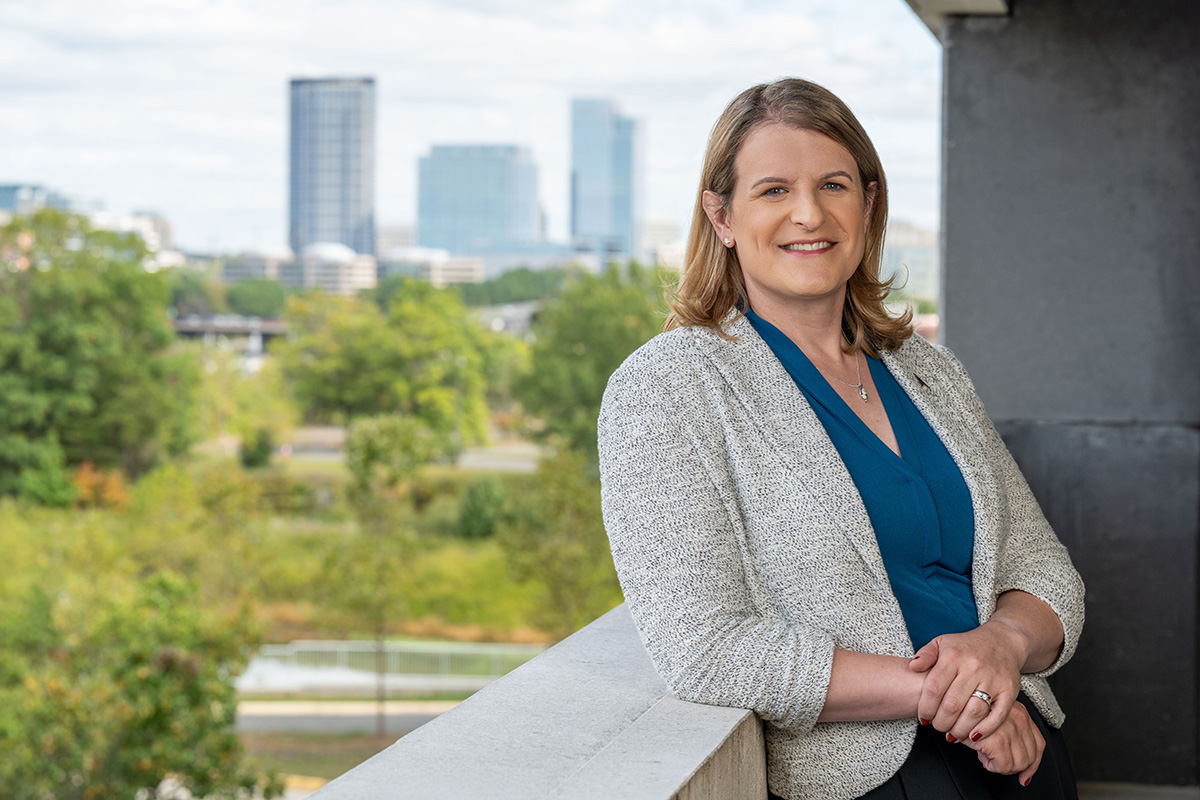
Fram said her leadership philosophy was shaped by watching strong, effective leaders during her time in the Air Force and Space Force — leaders who reinforced her belief that true leadership means expanding opportunity, not restricting it.
“Leadership is about tearing barriers down — not climbing over them and forcing others to suffer through the same things,” she said. “It’s about making sure the people coming up behind us have even more opportunity to go further, faster. How do we be better tomorrow than we are today? How do we fulfill our founding promise of life, liberty, and the pursuit of happiness?”
One way Fram said Congress could help dismantle those barriers is by passing the Equal Rights Amendment, enshrining constitutional protections for all people — particularly LGBTQ Americans.
“Getting the Equal Rights Amendment into the Constitution is absolutely critical to the future of queer rights,” she said. “Voting rights must also be clearly protected.”
Protecting democracy itself is also among her top priorities, Fram said.
“We need to take control of the House so we can put real checks on this administration,” she said. “That allows the American people to see how this administration is actively making their lives worse and less affordable — and it’s how we ultimately throw them out and get back to making life better.”
Fram said her experience working under four presidents — including during Trump’s first term — reinforced her belief that opposition to efforts curtailing civil liberties is essential.
“The primary thing we can do to protect democracy is to get rid of this administration,” she said. “Taking control of the House gives us true investigative power. Under every rock, there is likely an impeachable offense because they are failing to faithfully execute the laws of the United States.”
For her, the message Trump is sending is clear — he and others close-minded to the LGBTQ community are threatened by the possibility of what someone truly dedicated to service can become.
“One of the reasons this administration had to throw us out and silence us was because we were an example of what was possible. We shined so brightly by meeting or exceeding every standard that they couldn’t hide us away by any other means except kicking us out.”
Fram acknowledged that her identity has been a political target since 2016, but said those attacks have never been grounded in her ability to lead or accomplish complex missions over more than two decades of service.
“If others want to attack me on my identity, I welcome it,” she said. “I’m focused on whether people can afford groceries or feel safe in their communities.”
“I’m happy to be a lightning rod for those kinds of attacks,” she added. “If it allows Democrats to advance an agenda that makes life better for Americans, they can come after me all day long. They attacked me while I was in the military, before I was ever running for office.”
On policy, Fram said affordability, health care, and safety are at the center of her agenda.
“No one should be afraid to go to the doctor or fear surprise medical bills that put them into debt,” she said. “Every American deserves access to affordable, high-quality health care.”
She also emphasized a willingness to work across party lines — even with those who previously politicized her identity — if it means delivering results for constituents.
“If someone wants to work together to make people’s lives better, I’ll work with them,” she said. “If they want to come after me based on who I am, they can waste their energy on that.”
Asked how she defines hope in the current political moment, Fram rejected the idea of passive optimism.
“Hope isn’t naive optimism,” she said. “Hope is doing the work — engaging people and bending the moral arc of the universe toward justice.”
She added that representation itself can be transformative.
“Just being in Congress changes the narrative,” Fram said. “It lets a kid say, ‘Oh my God — I could do that too.’”
District of Columbia
Eleanor Holmes Norton ends 2026 reelection campaign
Longtime LGBTQ rights supporter introduced, backed LGBTQ-supportive legislation
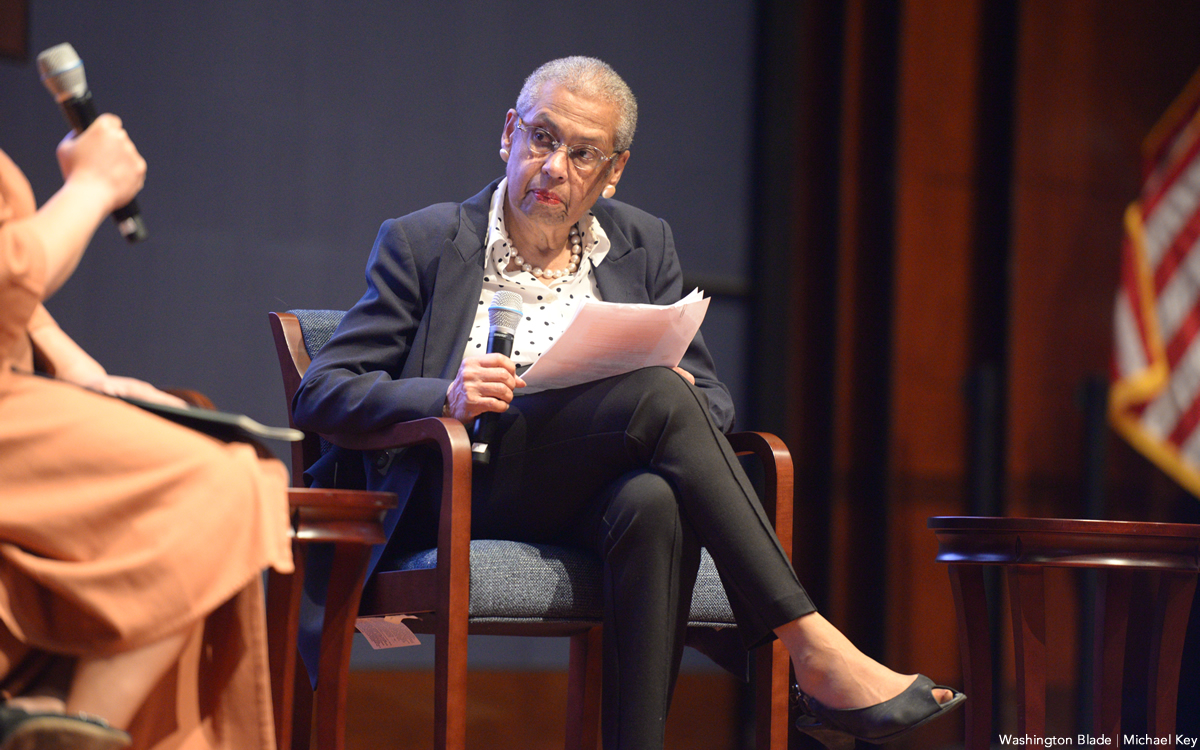
The reelection campaign for D.C. Congressional Delegate Eleanor Holmes Norton, who has been an outspoken supporter of LGBTQ rights since first taking office in 1991, filed a termination report on Jan. 25 with the Federal Elections Commission, indicating she will not run for a 19th term in the U.S. House of Representatives.
Norton’s decision not to run again, which was first reported by the online news publication NOTUS, comes at a time when many of her longtime supporters questioned her ability to continue in office at the age of 88.
NOTUS cited local political observers who pointed out that Norton has in the past year or two curtailed public appearances and, according to critics, has not taken sufficient action to oppose efforts by the Trump-Vance administration and Republican members of Congress to curtail D.C.’s limited home rule government.
Those same critics, however, have praised Norton for her 35-year tenure as the city’s non-voting delegate in the House and as a champion for a wide range of issues of interest to D.C. LGBTQ rights advocates have also praised her longstanding support for LGBTQ rights issues both locally and nationally.
D.C. gay Democratic Party activist Cartwright Moore, who has worked on Norton’s congressional staff from the time she first took office in 1991 until his retirement in 2021, points out that Norton’s role as a staunch LGBTQ ally dates back to the 1970s when she served as head of the New York City Commission on Human Rights.
“The congresswoman is a great person,” Moore told the Washington Blade in recounting his 30 years working on her staff, most recently as senior case worker dealing with local constituent issues.
Norton has been among the lead co-sponsors and outspoken supporters of LGBTQ rights legislation introduced in Congress since first taking office, including the currently pending Equality Act, which would ban employment discrimination based on sexual orientation and gender identity.
She has introduced multiple LGBTQ supportive bills, including her most recent bill introduced in June 2025, the District of Columbia Local Juror Non-Discrimination Act, which would ban D.C. residents from being disqualified from jury service in D.C. Superior Court based on their sexual orientation or gender identity.
For many years, Norton has marched in the city’s annual Pride parade.
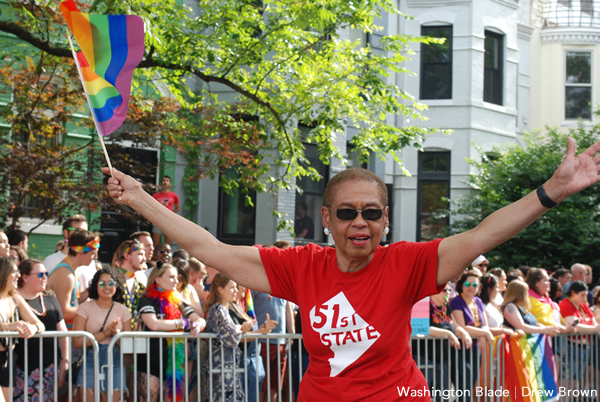
Her decision not to run for another term in office also comes at a time when, for the first time in many years, several prominent candidates emerged to run against her in the June 2026 D.C. Democratic primary. Among them are D.C. Council members Robert White (D-At-Large) and Brooke Pinto (D-Ward 2).
Others who have announced their candidacy for Norton’s seat include Jacque Patterson, president of the D.C. State Board of Education; Kinney Zalesne, a local Democratic party activist; and Trent Holbrook, who until recently served as Norton’s senior legislative counsel.
“For more than three decades, Congresswoman Norton has been Washington, D.C.’s steadfast warrior on Capitol Hill, a relentless advocate for our city’s right to self-determination, full democracy, and statehood,” said Oye Owolewa, the city’s elected U.S. shadow representative in a statement. “At every pivotal moment, she has stood firm on behalf of D.C. residents, never wavering in her pursuit of justice, equity, and meaningful representation for a city too often denied its rightful voice,” he said.
A spokesperson for Norton’s soon-to-close re-election campaign couldn’t immediately be reached for a comment by Norton on her decision not to seek another term in office.
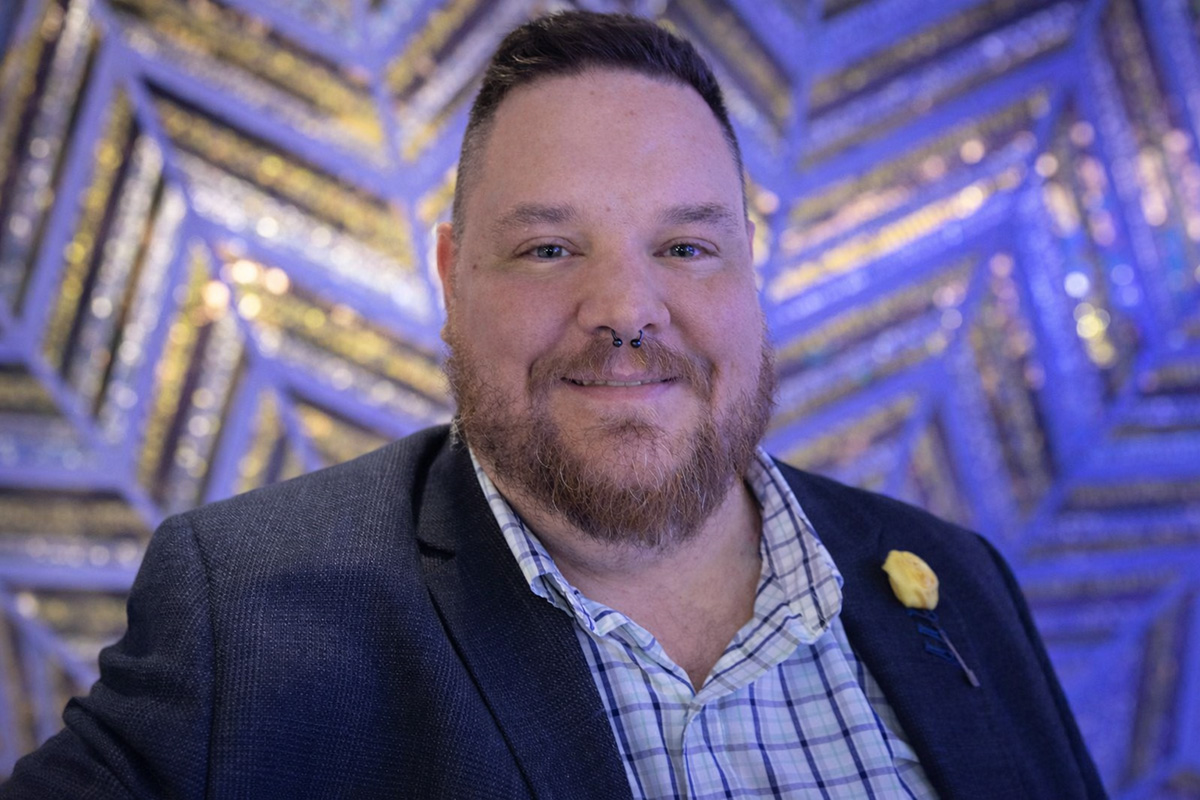
The Comings & Goings column is about sharing the professional successes of our community. We want to recognize those landing new jobs, new clients for their business, joining boards of organizations and other achievements. Please share your successes with us at [email protected].
The Comings & Goings column also invites LGBTQ+ college students to share their successes with us. If you have been elected to a student government position, gotten an exciting internship, or are graduating and beginning your career with a great job, let us know so we can share your success.
Congratulations to R. Warren Gill III, M.Div., M.A. on being appointed as the development manager at HIPS. Upon his appointment, Gill said, “For as long as I’ve lived in Washington, D.C., I’ve followed and admired the life-saving work HIPS does in our communities. I’m proud to join the staff and help strengthen the financial support that sustains this work.”
Gill will lead fundraising strategy, donor engagement, and institutional partnerships. HIPS promotes the health, rights, and dignity of individuals and communities impacted by sexual exchange and/or drug use due to choice, coercion, or circumstance. HIPS provides compassionate harm reduction services, advocacy, and community engagement that is respectful, non-judgmental, and affirms and honors individual power and agency.
Gill has built a career at the intersection of progressive politics, advocacy, and nonprofit leadership. Previously he served as director of communications at AIDS United, supporting national efforts to end the HIV epidemic. Prior to that he had roles including; being press secretary for Sen. Bernie Sanders during the 2016 presidential primary, and working with the General Board of Church and Society, the United Methodist Church, the denomination’s social justice and advocacy arm.
Gill earned his bachelor’s degree in philosophy and religious studies, Jewish Studies, Stockton University; his master’s degree in political communication from American University, where his graduate research focused on values-based messaging and cognitive linguistics; and his master of Divinity degree from the Pacific School of Religion.

















